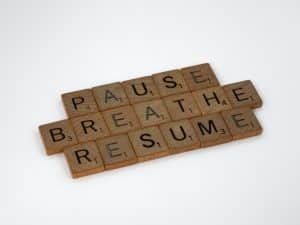
They say that it can be stranger than fiction. Sometimes it hurts. Allegedly, it can also set you free. It is critically important, whenever possible, to speak it to “power.” How can one thing be and do all of this, and probably more? Even more so, how can one thing that is capable of all of that always be “good”?
If you’ve spent five minutes of your life engaging with other people, then you know, the truth is, it’s complicated. People are complicated. You are complicated. And the truth itself? Well, that can be a matter of perspective.
I’m not trying to kickstart a philosophy seminar here, because 1) I’m under-qualified and 2) what the “truth” is could keep us busy, well…forever. This is more about what you choose to do with the truth when the question arises, and how to make mindful choices about the actions you take, which include the words you choose to speak.
So let’s start with basic, human interactions. We all like to think we’re generally honest people. But in reality, we make small calculations all day long about how we engage with what we believe to be true. There are well-intentioned lies, like telling someone you’re busy on Friday night to cover for a surprise party they really don’t see coming, or complimenting someone’s appearance because you think they need to hear it, or you want them to like you.
Then, there are those deliberately vague statements like, “That’s interesting” or “I’m not sure,” when you definitely, for sure are sure. Those are often intended to protect the person to whom you’re speaking, and sometimes they do, but they’re also protecting you – keeping you from being potentially hurtful with your honesty. Now, just because you have yourself at least partially in mind here doesn’t mean the approach is “wrong,” but it is worth noting that they’re not the only ones in your frame of reference.
Have you ever felt “compelled” to tell someone the truth, even though you knew it would upset them? If so, and if you did it, how’d that go? I’m genuinely curious, because there’s one school of thought that says honesty is always the best policy, but then there’s this other experience called reality that tends to be a bit less straightforward. And really, it’s less about how it worked out, because maybe you regretted it and maybe you didn’t – or maybe you don’t believe in regret, so it’s irrelevant. The interesting part of the equation for me is the “compelled” part. That’s what was going on inside you. That’s what drove you to speak.
The question is, what were your intentions? Were you mainly driven by the best interest of the other person, or was it about your need to free yourself of the burden? Did you want to be a person who didn’t hold back more than they actually needed to hear what you had to say? Or maybe, conversely, did you choose not to speak so that you didn’t have to be the person who cracked the foundation?
This is deeply complicated stuff, but if you want to have any hope of acting in a way that you can live with for as long as you you’ll remember it, you need to be present in the moment. You need to at least recognize what’s motivating your actions, so that regardless of what it is, you made your choice intentionally. That is all you can ask of yourself – to be able to say you showed up, and tried your best to be your authentic self in that particular, passing moment.
If you’re lucky and get to live a long, full, messy and beautiful human life, you will encounter situations that cover all of the above. They will come in the form of casual small talk, intense debate, professional Q & A, heartfelt catch-ups and deeply meaningful declarations of love, and the lack thereof. The “truth,” as you see it, will dance around and through each of these interactions, and you will choose how closely you invite it in. Our greatest hope, I think, is to find situations, work, friendship and partnership that makes space for our authenticity, and limit the anguish of choosing to be delicate instead of direct, or vice versa.
The critical element here is discernment. A regular mindfulness practice can help you better understand what’s going on internally when you are about to speak – whether it’s about spilling the truth, sharing your opinion, offering an assessment, or none of the above. But when in doubt, ask yourself what need speaking up will fulfill. Does the information need to be known to avoid a catastrophe of some sort? Will it make a material difference in the decisions another person chooses to make? Or are you sharing because you feel the need to? If so, are you okay with accepting whatever the consequences are? If so, then you are clear to keep calm, and carry on.
The truth always finds its way to the surface, in some form or another. Sometimes, it might need your help; other times, maybe not. If you’re not sure which is the case, step back, catch your breath, and check your intention. If you take that moment before you speak, you won’t regret it – honestly.
“Before you speak, ask yourself: is it kind, is it necessary, is it true, does it improve on the silence?” – Sai Baba
Photo credit: Giulia Bertelli




3 thoughts on “True story”
Pingback: No-Fail Friday: Goes without saying…? | MindfulMBA
Pingback: Up in the air | MindfulMBA
Pingback: You and yours | MindfulMBA